
Words by Sarah Myers
Photography by Callum Toy and Joseph Ironmonger
“There’s something intrinsically powerful about using creative activities to support people in dealing with the traumatic things they’ve experienced,” says Jenny Young, Founder and Director of Blue Cabin, an arts charity working with care-experienced people in the north-east of England and beyond.
One of Blue Cabin’s key beliefs is that the arts and creativity can help build trust and develop and strengthen relationships – something that’s essential for care-experienced young people who need to heal from adverse childhood experiences. But, having previously worked in a local authority and a large cultural institution, Jenny found that those creative activities weren’t always easy for care-experienced young people to come by.
“There are often challenges in ensuring that care-experienced people have their human right to access great art and culture. They can live in lots of different homes, and they might change schools often. Connecting to creativity and their local cultural offer isn’t necessarily at the forefront of their experiences.”
So, in 2016, Jenny set up Blue Cabin, which offers a wide range of creative projects for care-experienced infants, children, young people and adults. Initially a small community interest company, it’s now a registered charity with three full-time, together with six part-time, staff members as well as associate artists and therapists who provide staff and freelancers with therapeutic supervision. Ensuring the well-being of staff is a priority for Blue Cabin. The supervision provided is essential to help the team manage the impact of being exposed to other people’s trauma when supporting survivors of adverse childhood experiences.
All of Blue Cabin’s activities help individuals to acquire the skills and understanding necessary to build robust relationships. The ability to engage and create trust with others safely can radically change the course of a person’s life. “We know how important it is for care-experienced people of any age to develop and strengthen the relationships with the people in their lives” explains Jenny. “For some, that will be a foster carer. For others, it will be a kinship carer or an adoptive parent.”
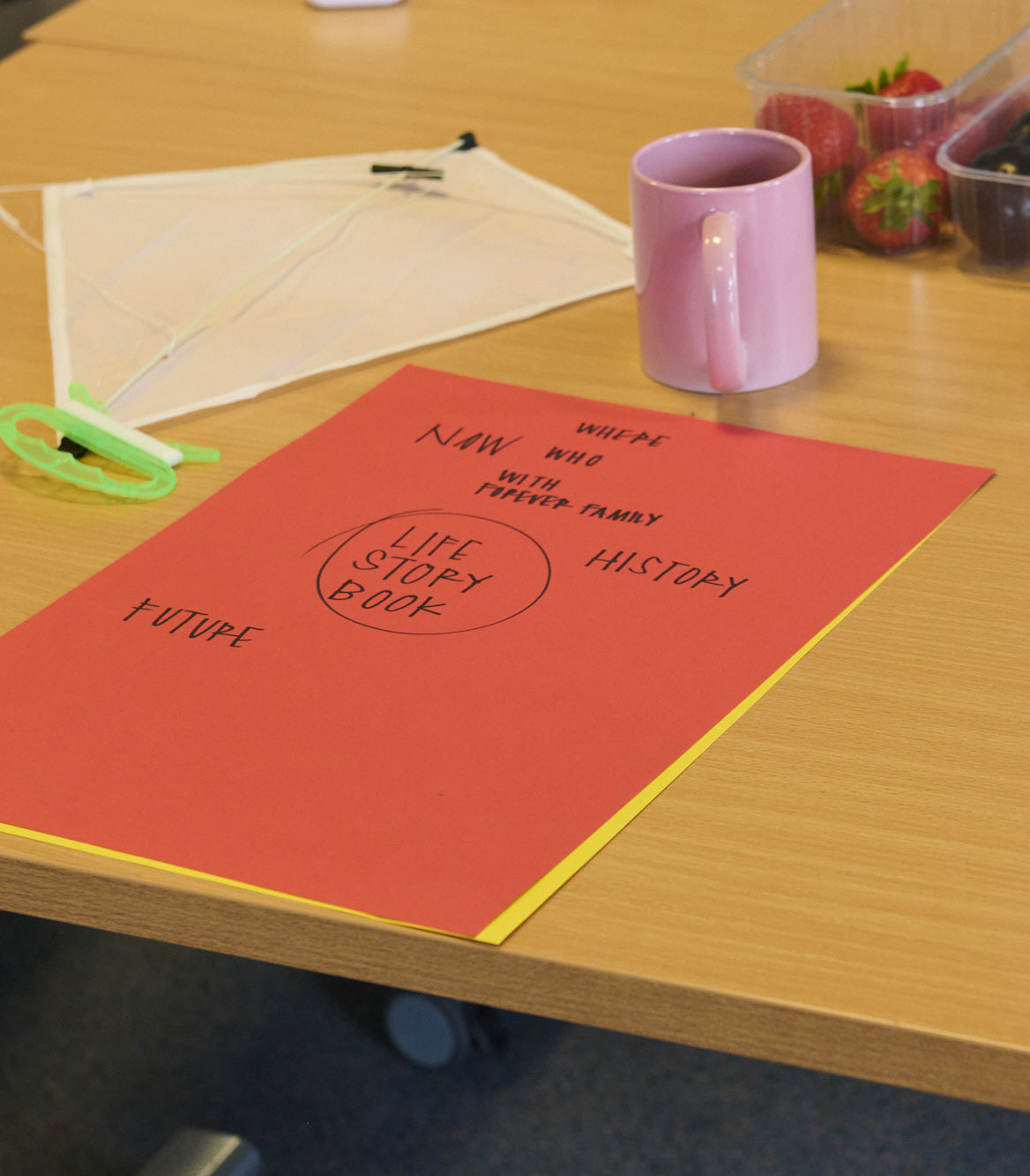
Bonding over music
Blue Cabin’s youngest participant is a five-week-old baby, who’s currently with a foster carer. They attend ‘This is the Place’, an early years music-making programme. “Babies and their carers come and take part in beautiful, trauma-informed music-making experiences facilitated by our associate artists,” says Jenny. As babies play, they’re supported to develop their attachment to their carer, their confidence, their language and communication, and their sense of identity. “Initial attachments are so important for development. The babies are also strengthening their relationships with their carer, which can enable them to heal from very early adverse childhood experiences – either prebirth or after they’ve been born. Our wonderful associate artists specialise in many different art forms, such as music, and also take part in training in trauma, attachment and recovery.”
As well as attending weekly sessions, carers are given resources so that they can continue to make music with their babies at home. This is about building the carers’ knowledge and confidence to help with routine, soothing and regulation.
Jenny shares an example of a baby who started the sessions not wanting to leave her carer, but quickly moved on to form strong attachments with other people in the group. “She’s started to babble and talk. She helps the musicians play the ukulele and interacts with other babies and adults in the group,” she says. “Her carer says that her development has been really striking and cites attending the sessions as integral to that.”
Understanding the past
Blue Cabin also supports care leavers, a strand of work they will develop further in the future. Currently they offer ‘All About Us’, a six-week online or face to face programme that supports young people to think about their life story. They consider themes like: Who am I? Why do I live where I live? Who’s in my life? What are my favourite things? What do I want for my future?
“Our associate artists facilitate these creative sessions alongside a key adult in their life,” says Jenny. They use a range of approaches, including design, theatre, craft and puppetry. “The sessions help the young people to gain a better understanding of their past. This enables them to make sense of their identity and their previous relationships in order to move forward.”
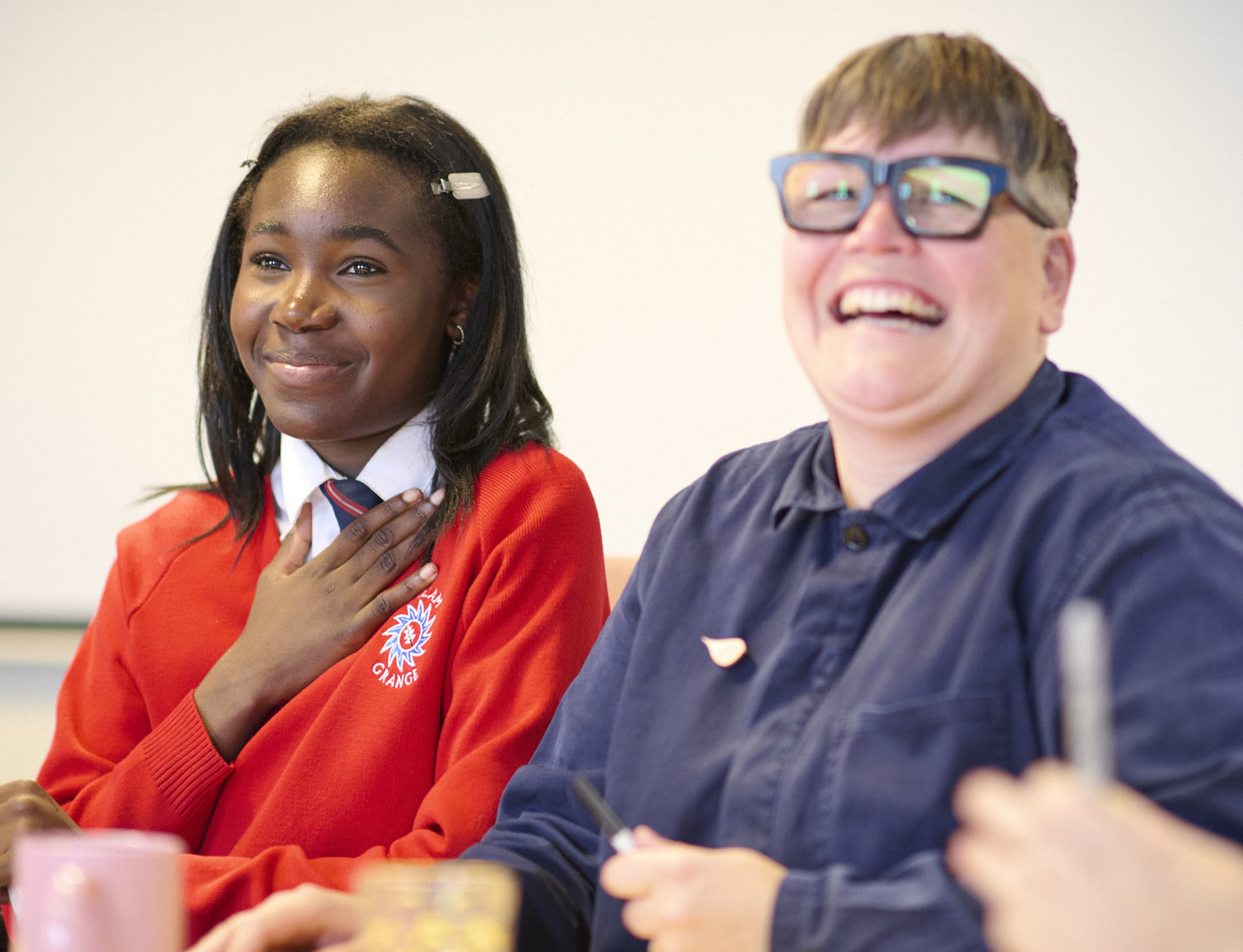 A Blue Cabin creative session led by associate artists
A Blue Cabin creative session led by associate artists
Something helping Blue Cabin to move forward as a charity is a multi-year grant from the Leathersellers’ Foundation. “Long-term core funding is integral to our growth and our long-term survival,” says Jenny. “It helps to make sure we can continue doing this work and grow and deepen the impact that we have.”
Tackling abuse and violence
Another Leathersellers’ Foundation grantee using creative processes to tackle adverse childhood experiences is Tender. The England-wide charity, which celebrated its 20th anniversary last year, uses drama-based activities to educate children, young people and adults about healthy relationships.
In a strategic shift for the charity, Tender is embarking on a 10-year mission to prevent domestic violence and abuse, focusing their activities on wider systemic change, while continuing their direct delivery with children and adults. Domestic abuse includes a range of adverse childhood experiences. These can include sexual, physical and psychological abuse, which affect the child or young person’s environment, relationships, and view of themselves well into the future.
“Domestic violence and abuse can have absolutely devastating knock-on effects on those experiencing them,” says Cordelia Morrison, Tender’s Development Manager. “They can impact educational attendance or attainment. Or, if abuse is happening to an adult, they may struggle with work because of the trauma they’re experiencing. We also know it’s an issue that interacts quite significantly with homelessness, and very much so with poor mental health.”
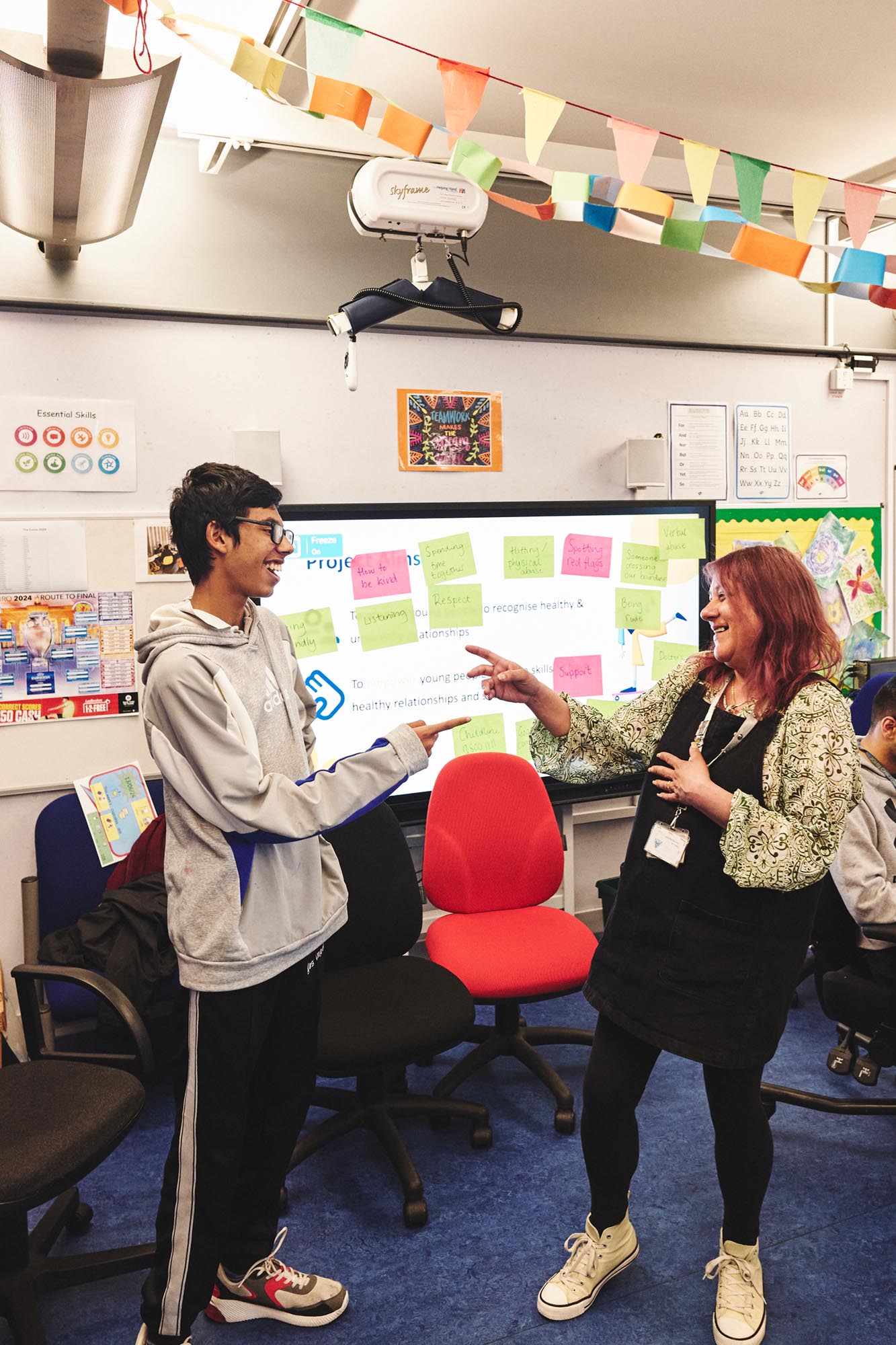 A Tender workshop held with pupils at the John Chilton School in Northolt
A Tender workshop held with pupils at the John Chilton School in Northolt
Learning the signs
Tender works with a wide variety of organisations, from primary schools to global businesses. The charity provides a safe, enjoyable space where people can engage with sensitive topics. They can ‘rehearse’ for real-life scenarios and explore their rights, responsibilities and expectations within relationships. “For young people, we have scripts where they observe characters meeting for the first time,” says Cordelia.
“Peppered into that interaction are examples of what we call ‘early warning signs’ or ‘red flags’ that the relationship might not be particularly healthy.” This might be coercive or controlling behaviour, for example.
Why does drama work so well when it comes to addressing adverse childhood experiences? Cordelia says that using roleplay and drama helps participants to develop their skills in understanding people. “Drama is such a relational art form. We find it a fantastic tool for developing empathy.”
Using characters and roleplay makes exploring sensitive issues, such as abuse, a bit easier. “It’s a lot less exposing than asking people to give their personal opinion,” says Cordelia. “Those characters act as a buffer. It also makes learning about a very difficult subject feel a bit more positive.”
She adds that their expert facilitators are adept at picking up on when something a child says is coming from personal experience. They are there to offer support to the child and the school. Enabling teachers to identify and intervene when children and young people are at risk not only changes the lives of those experiencing abuse, but means that Tender’s impact goes far beyond what they deliver in their sessions.
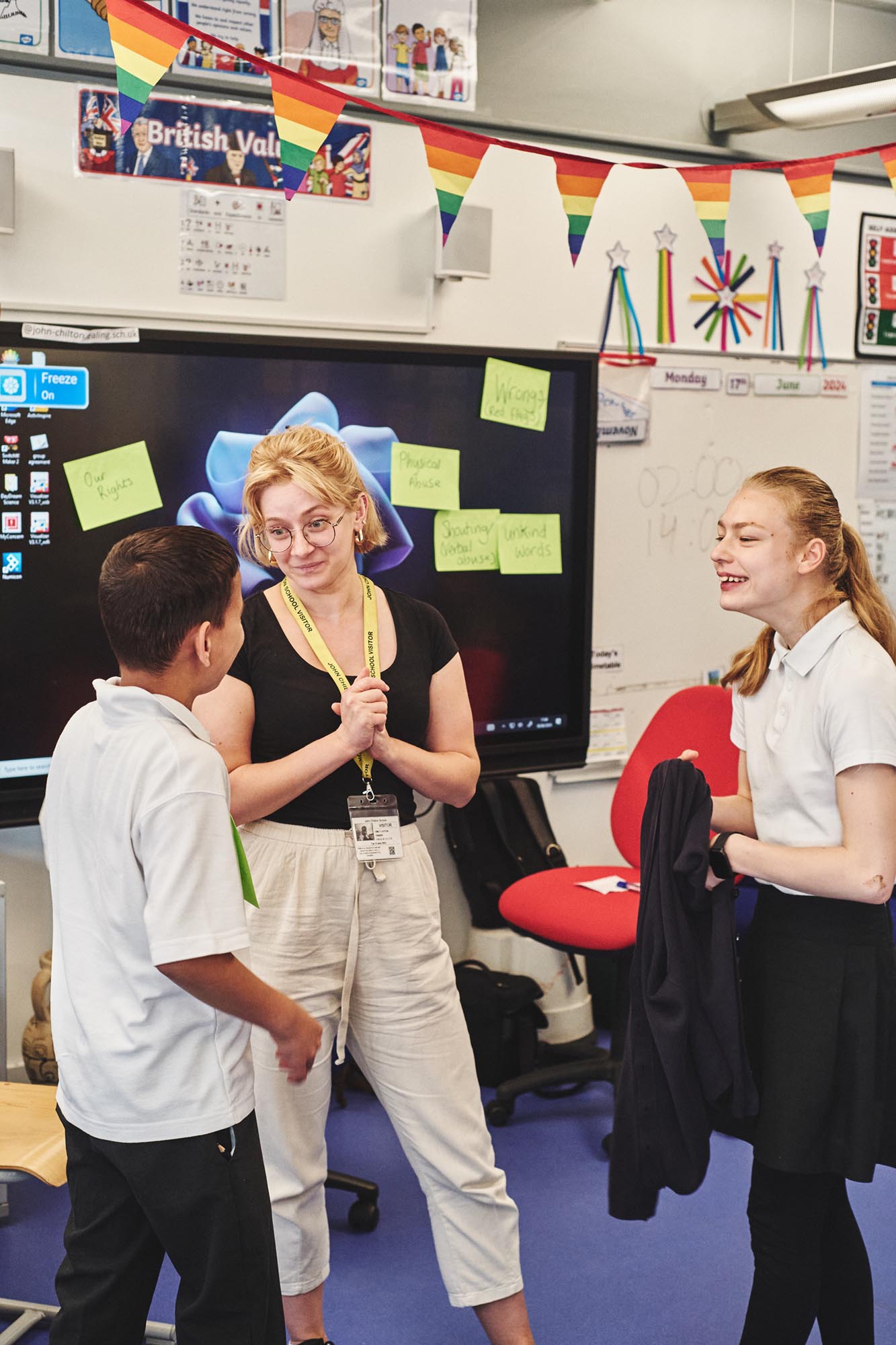
Creating healthier dynamics
Like Blue Cabin, Tender delivers programmes tailored to different life stages. For secondary school, they might look at abuse in the context of a new romantic relationship. For example, when someone asks you out, are there any subtle signs that this person might exercise controlling or coercive behaviour further down the line? “It’s an opportunity for people to see how those types of interactions might play out,” says Cordelia. “But the young people also get to decide how those interactions could go better. How could this be a healthier dynamic?”
For primary schools, the sessions focus on healthy and unhealthy friendships. Cordelia says that giving children tools and vocabulary at an early age helps them to set boundaries when they start considering intimate relationships in their teenage years. “They have a lot of that foundational understanding of how to have good relationships, for when sexual consent becomes relevant to their lives.”
In 2022–2023 96% of secondary school participants in Tender projects said that they had more knowledge about healthy and unhealthy relationships. Around 85% felt more confident in dealing with issues of violence and abuse. As one participant put it, “In the future, if it [abuse] does happen, what I’ve learnt will get brought up in my brain and I will use it.”
Tender expects to reach an average of 23,750 young people and 3,500 adults each year. Cordelia says that the Leathersellers’ Foundation’s core funding has been invaluable in strengthening their organisation and helping to achieve this reach. “Having a strong infrastructure is particularly important when you’re dealing with really sensitive issues. Things like our safeguarding procedures, our diversity, equity and inclusion procedures and our staff well-being are all vital – and that’s the sort of thing to which core funding makes a massive difference.”
It’s clear that what organisations like Blue Cabin and Tender do now has the potential to change the future. Working with people of all ages, from infants to adults, Leathersellers’ grantees are intervening to support those affected by adverse childhood experiences, and helping to break the cycle of harm for the next generation.
—
The Leathersellers’ Foundation’s ACEs Main Grants Programme provides multi-year grants of £20,000-£25,000 per year for up to four years. Grants are open to charities and charitable incorporated organisations (CIOs) throughout the UK working to prevent and tackle the consequences of Adverse Childhood Experiences (ACEs).
What is an adverse childhood experience?
Adverse Childhood Experiences (ACEs) are a recognised set of traumatic experiences, including abuse, violence, neglect, parental imprisonment and parental substance misuse. When children and young people experience multiple ACEs before the age of 18, it can have a lifelong impact on their future life chances, relationships, and physical and mental health.
READ MORE
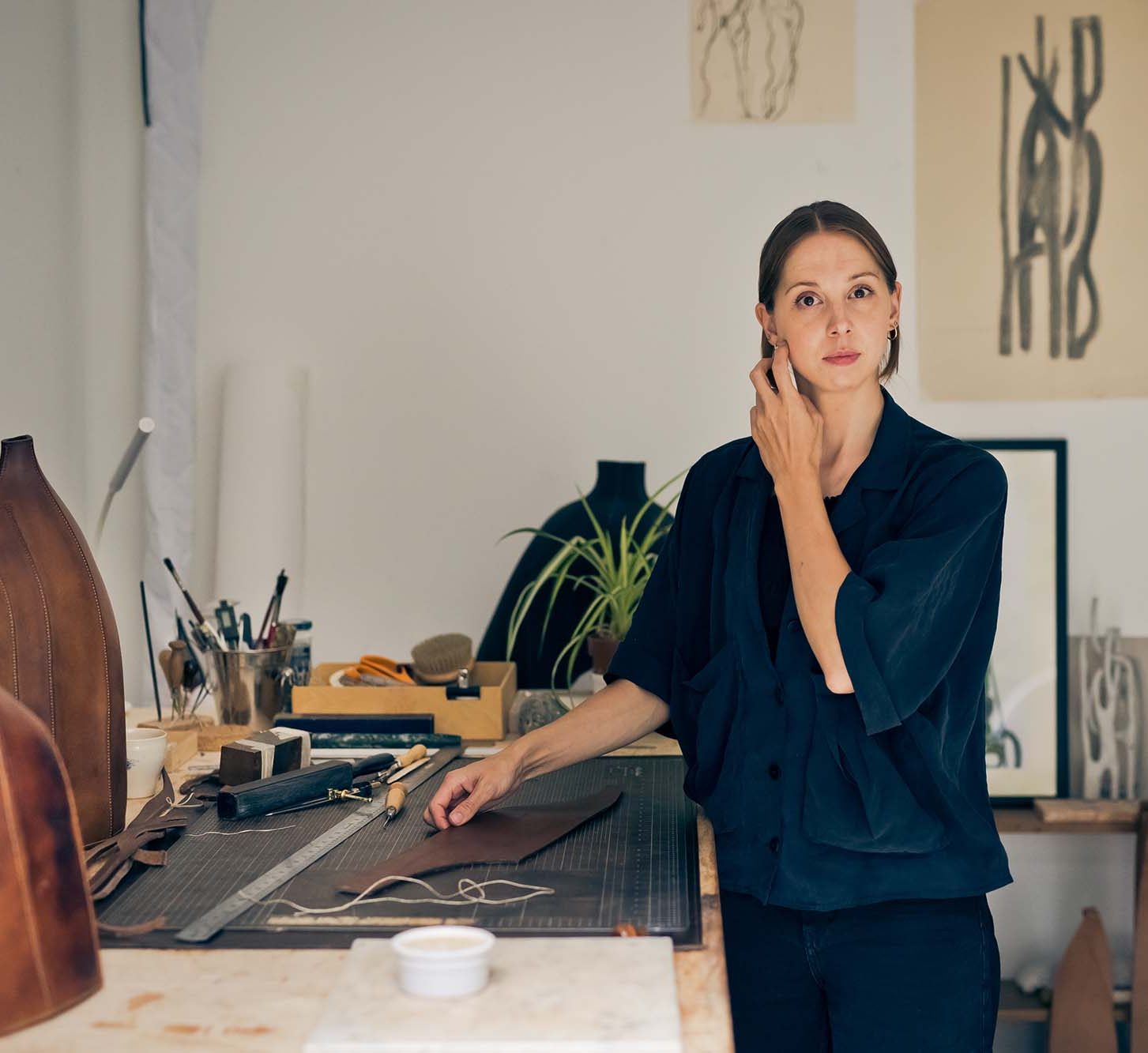
Dream Maker
In her sleep, Frances Pinnock finds inspiration for her figurative leather sculptures.
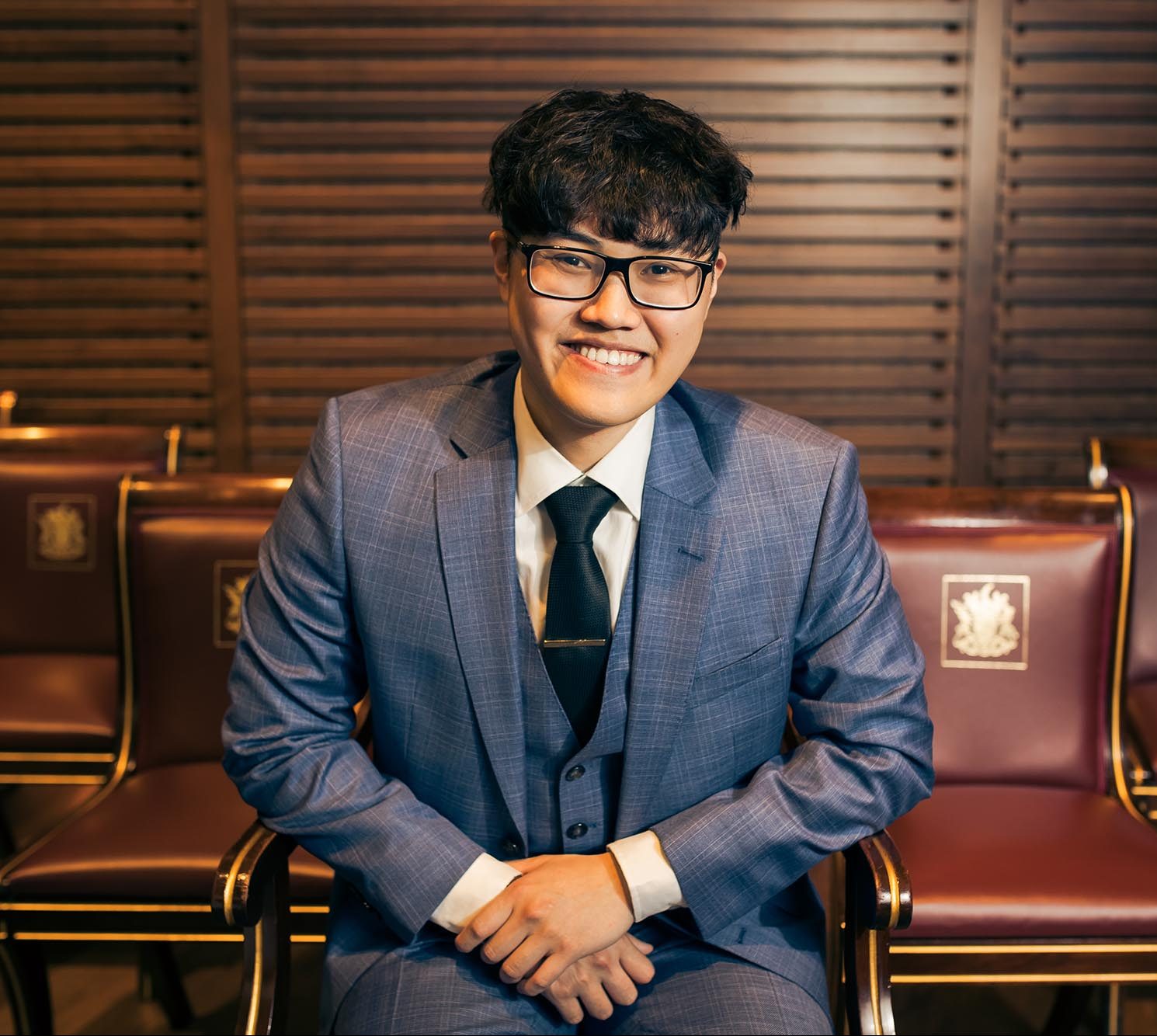
Leathersellers’ Scholarships at Colfe's School
Celebrating the long-term success of the Leathersellers’ Scholarships at Colfe’s School.
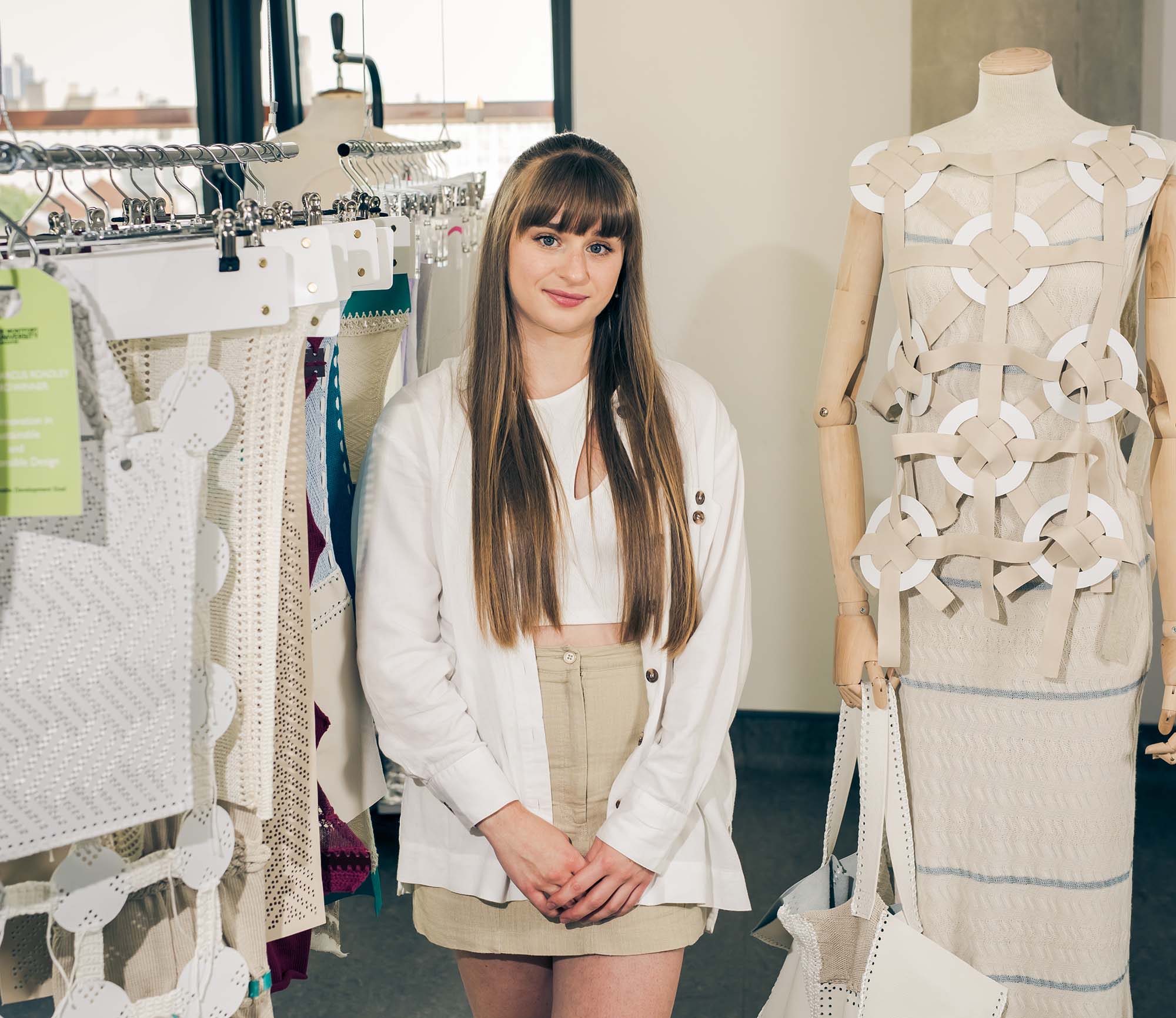
Fashioning History
For an inspired project at Leicester’s De Montfort University, students of “Artifacts Live” are drawing on the lessons of historic leathercraft to create the designs of the future.